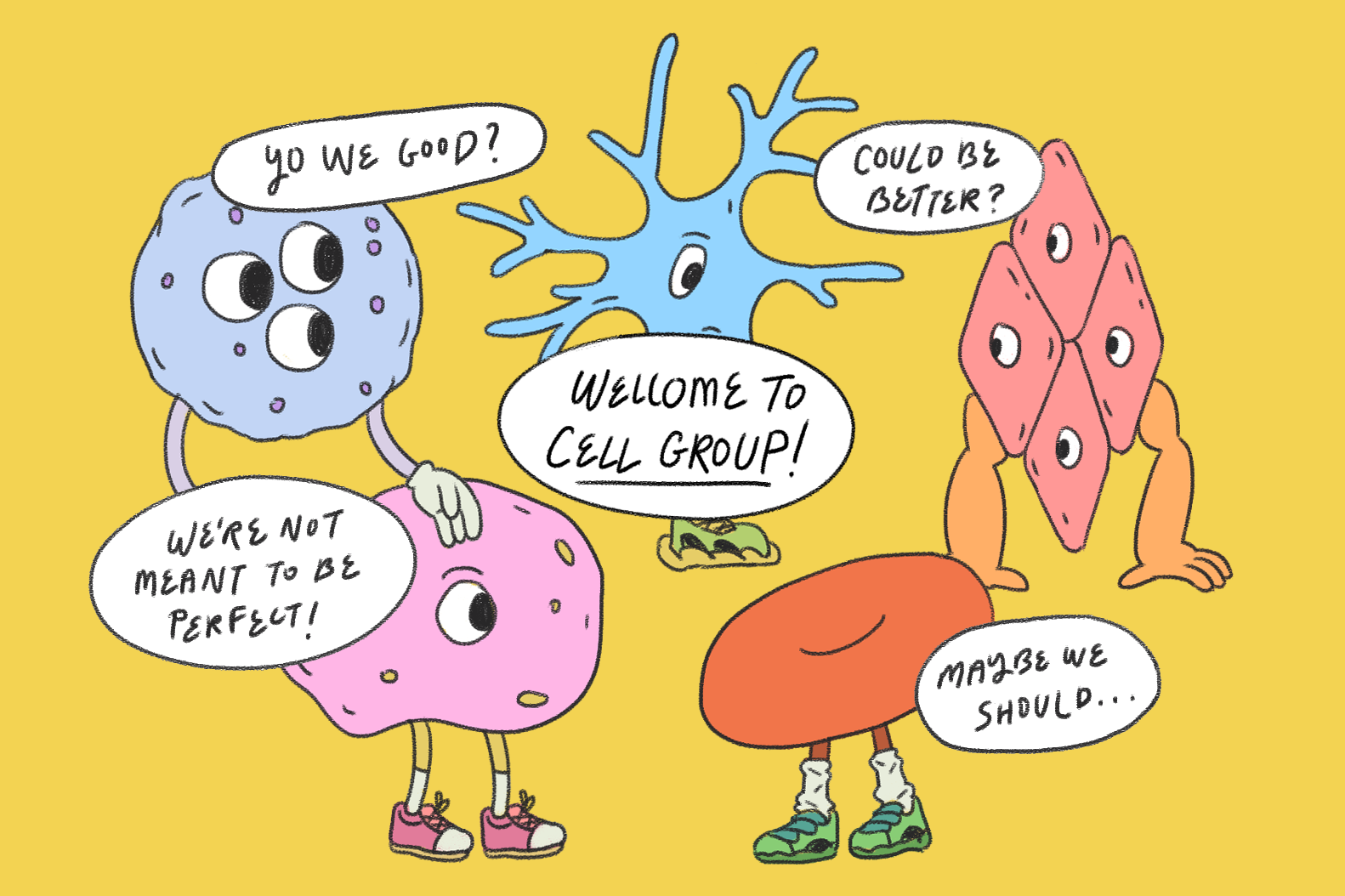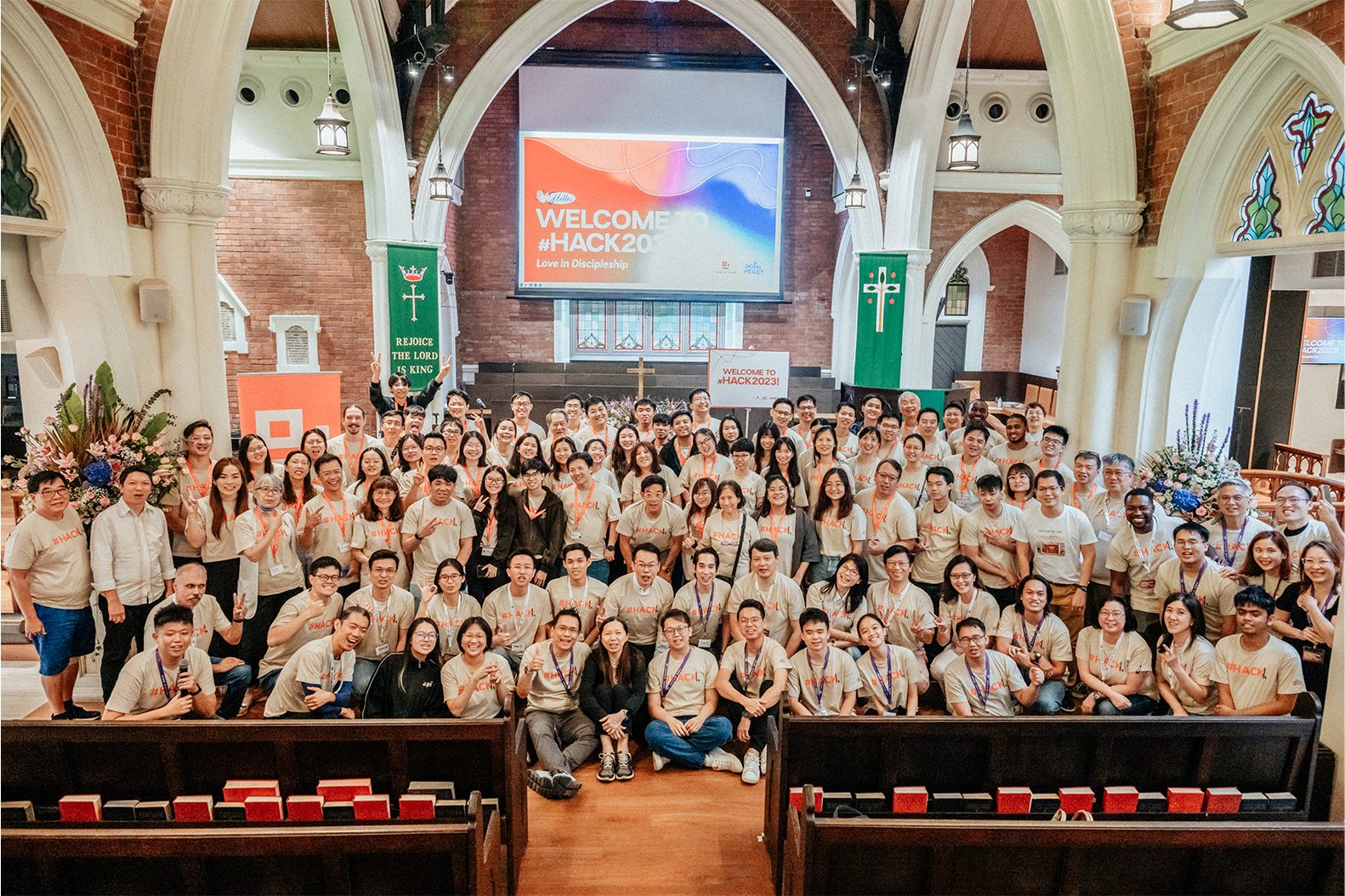There may be a problem in the way some of us think about cell group.
Before I get to that, let me first give you some background. Imagine having spent most of your growing years in church: You went through Sunday School and then to youth service, and now you’re part of the young adult congregation.
Youth service, in particular, was a time where everyone did everything together. By that I mean, you did secondary school together, O-Levels, maybe A-Levels. Or polytechnic. That meant everyone had similar issues: Conflicts with parents, beef with some “friends” in school, you got dumped by a girl…
Point is, seeing how homogeneous everyone’s experiences of life typically were during that phase, your cell group – by extension – got it. They got you. After all, they were right there at that life stage too!

But here’s the thing, now that you’re a little older. It’s not quite the same anymore.
In your 20s, having become a young adult, you realise that each member of your cell group is at a different life stage. Some are still studying. Some are working. Others are trying to find work. Some are trying to find somebody to love. Some are already dating or married. And some are having kids – while others are trying to have them.
You see it, don’t you? You’re in a life stage of your own, and it can quickly seem lonely. Everyone’s doing their own thing, and it’s easy to feel like no one really gets you. So you start thinking of how it could be better.
- “If only this cell was made up of people from the same industry.”
- “We should move to a cell with older married couples who can mentor us.”
- “Maybe I should join a cell with other young parents with babies and toddlers.”
- “The cell might have to split into ‘singles’ and ‘marrieds’.”
The requirements for a cell that “works” end up ranging from the reasonable-sounding to the downright frivolous and self-centred. Are these even boxes that God wants us to check?

So, with the scene set, we can begin to look at the question at hand: Should I just be joining cell groups based on interests, personal needs or life stages?
As I thought about it, I wasn’t sure if it was a black and white question – whether we could decide if it’s simply right or wrong to do so.
A friend in Australia told me about a church he visited where cells were organised around interests. So, while he was there, the cell he was attached to had fishing as their common interest and it was filled with folks of every age. This made it a lot easier for older folks to bond with the younger folks.
The main purpose for the cell group is our sanctification, not comfort – and sanctification is usually uncomfortable.
There are a lot of positives about such a structure. If that’s how the church wants to run it, I’d be down to flow with it and see how it works out.
But now for the cons: While comfortable, such an arrangement might be too comfortable.
If everyone is cut from the same cloth, cell group might become a silo. We’d end up with the very real and common result of everyone looking the same in church, when the church is meant for all. The main purpose for the cell group is our sanctification, not comfort – and sanctification is usually uncomfortable.
So if there isn’t a specific direction for such groupings from above – and this should come with good reason – I believe it would be unproductive to suka-suka (i.e. do as one likes) seek out people just like us so we can customise our cell group experience.
It’s not about what we’re looking for in a cell. It’s about what God wants to get out of us through the family He grafts us into.
 Did you catch Bohemian Rhapsody?
Did you catch Bohemian Rhapsody?
Great film. I saw it last week with Cheryl, and there was a scene that stuck with me. After experiencing great success with Queen, Freddie Mercury strikes out on his own as a solo star for a few years, explaining he was sick of the drama and that he just wanted to do his own thing.
He hires new band members who simply play the instruments just the way he wants, who don’t make music a messy thing for him. But the music he makes ends up being not so great. In fact, it’s pretty meh.
Fast forward a few years and after several life lessons, Freddie comes back to his former bandmates humbly asking for forgiveness and a reunion. Freddie realises where he’s gone wrong: After he left, he didn’t have any “pushback” from Roger any longer, and neither did he have to receive anymore honest feedback from the band – his family.
We need to be careful we don’t make cell group like that; we can’t make it all about us and what we like and want. Cell group will no doubt have its fair share of messy relationships, pushback and being challenged, but it’s ultimately good for us.
We need each other. It’s an uncomfortable family a lot of the time – but it’s family all the time.
 The reason why this is on my mind is because it’s where I am right now.
The reason why this is on my mind is because it’s where I am right now.
Cheryl and I are going to get married in June, and it also happens to be a season of transitions as our cell groups (we’re in different ones) are thinking of future plans such as multiplying.
Having a real chance to start somewhere fresh, we felt early on that it’d make sense to look for a cell group big on marriage and parenting that we could join together, especially since married folks are the minority in our current cluster of cells.
We’ve decided that cell group will always be a family where God wants to place us – not just some other place we want to go.
That was until one of our relationship mentors challenged us to reconsider changing cells just because we wanted something the cells around us didn’t seem to offer. She shared that she didn’t bail on her own cell – her leaders didn’t have children yet at that point – and join a parenting one just because they were going to have their first kid.
Instead, they stayed on and became the pioneer parents of their cell. The whole cell group ended up learning parenting together. And though there were certain things they could not do for each other, they would help in practical ways through difficult days such as making soup or offering car rides.
So though the group had many folks at different life stages, they all came together and contributed uniquely for the same causes – sanctification and unity. And all of them were better for it.
 I’m still uncertain about what our next move is, but not in a bad way.
I’m still uncertain about what our next move is, but not in a bad way.
We’re just asking God where He wants us to go. We’ve decided that cell group will always be a family where God wants to place us – not just some other place we want to go.
Besides, Cheryl and I can continue to learn about specific things such as marriage and parenting in a mentoring relationship. There are resources beyond cell for our evolving needs.
And that’s precisely the problem: Our needs will keep changing. If we pick cell groups as if we’re picking dishes at the cai fan stall, we’re going to keep changing cells at the first hint of a new season. That’s being planted all over the place, but never putting down real roots.
It can’t be like that. So having decided not to make cell about us, we’re going to wherever He calls us – however uncomfortable it gets.









